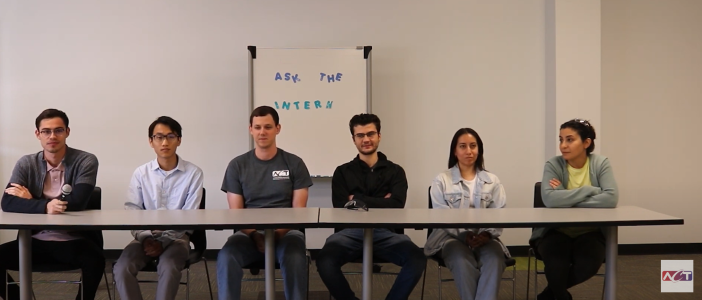Engineering Internships at ACT
Internships are a vital part of a college student’s success as they motivate, inspire, and engage students in real-world scenarios. At ACT, our goal is to provide interns with an immersive experience in their field of study so that they can explore what a career looks like in that industry; along the way, interns gain industry knowledge to take with them as they continue their education or seek employment. In exchange, ACT benefits from the fresh perspective of incoming interns; one of our core values is Teamwork, and this is exemplified in the sharing of knowledge and ideas across our internship program.
ACT’s internship program runs from May-August, and students apply online to be considered for the program. This summer (2022), six students were selected from an applicant pool that spanned the globe; representing Penn State University, University of Minnesota, Stanford University, University of the District of Columbia, Georgia Tech, and Columbia University, these students brought with them a unique and diverse set of interests, experiences, and skills. The interns were placed with specific teams based on current workloads and their personal interests. The interns then worked on different projects within their assigned groups, ranging from R&D to product development.
Thermal Management Projects By Interns
These are just a few of the projects our summer interns experienced:
Tim had the opportunity to dive into a project using non-thermal plasma to deoxidize titanium powders used in additive manufacturing. He worked to come up with a treatment process to overcome the oxide growth on these powders and then presented his findings to the company during an internal learning session.
Masha could often be found in the lab with a camera, attempting to capture the plasma reaction in her experiment setup. Her studies included research into methane reforming for syngas—or steam-methane reforming using plasma technology—in the R&D group.
John partnered with the R&D team working on a current ARPA-E remedy project aimed at reducing the global warming effects of methane in the atmosphere. John worked to find solutions that could reduce the methane expelling from flare facilities in remote locations by utilizing Swiss-roll combustion technology, particularly in the oil and gas industry.
Julian collaborated with an R&D team to develop a novel cooling system for neutron furnaces at Oak Ridge National Laboratory. Using a combination of numerical CFD modeling and experimental measurements, Julian demonstrated how fast a sample can be cooled inside this high-temperature furnace.

ACT’s summer interns during a “ask the interns” panelIf you are an engineering student looking to expand your knowledge and experience with an internship, reach out to our human resources team or fill out our internship form online.
